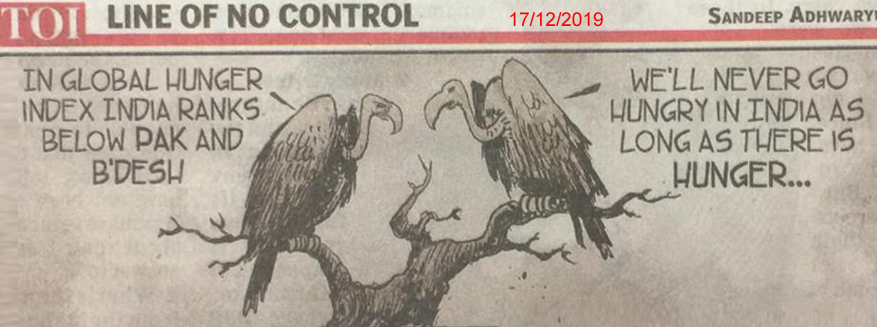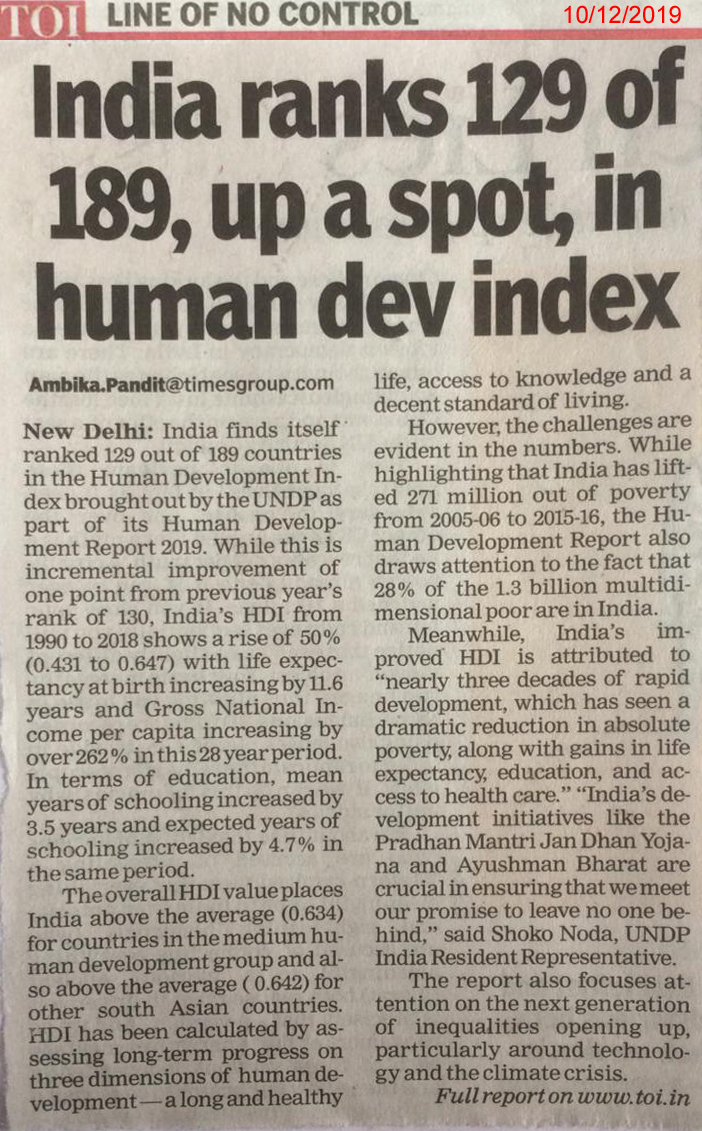Constitution and the judiciary
&
’How only the Judiciary can save India’?
Friends,
- In a democracy people are paramount and it is the inherent duty of the Executive, the Legislature and the Judiciary to perform meaningful roles in making the lives of the people dignified and happy (p.5 of the Book).
- But in the face ofthe rising level of poverty and illiteracy, consistent shortage of water and electricity, creaking infrastructure, dangerously depleting environment, dwindling value of rupee and uncontrollable rising debts, galloping inflation, rising cases of scams and rising unemployment present a nightmarish state of affairs of our nation that torment and terrify the people – because all guardians of free India have fumbled (p.10 of the Book).
Not by charity, not by dole-outs which are human rights violations and abuse of Part III and IV of the Constitution; our people must be able, at the very least, to feed themselves naturally and with dignity (p.18 of the Book).
- It also means lack of checks and balances on our Legislature and Executive to ensure prudent implementation of the Constitution.
- Checks and balances on the working and performance of Legislature and Executive is inherent incumbency of our Judiciary (p.19 of the Book).
- I would like to submit with due apologies that it shows a passive attitude of our learned Judiciary, permitting the regressive, treacherous and parasitic practices adopted by the malevolent governing guardians to set in.


The Judiciary has said, that under the Constitution, every citizen is guaranteed the right to lead a dignified life (clippings 60, 60A of the book). The Judiciary also admits that they are the “watchdog” of the governments to check on such regressive practices that violate Parts III and IV of the Constitution. [But what is philosophized is never practiced].
Constitution says that: “Judicial power also includes the power to take corrective action whenever other government branches fail in their duty to respect the rights of the citizens and protect them.” K.G. Balakrishnan, CJI (Clipping 2) (p.19 of the Book).

Human Rights
The basic incumbency of a nation is to take care of the human rights of its people and keep them happy and satisfied. A disgruntled society, besides being a blemish on the nation, may also lead to instability of the nation (p.119 of the Book).
Whereas it is essential, if man is not to be compelled to have recourse, as a last resort, to rebellion against tyranny and oppression, that human rights (basic objectives of the Constitution) - should be protected by the Judiciary, by the rule of law (p.121 of the Book).
For the governing guardians (Legislature and Executive), to only “strive” and not be able to achieve the ‘Basic Objectives’ is a betrayal by them and is tantamount to treachery with the people.
The Supreme Court of India also pronounces that Part IV, Directive Principles, is fundamental to the governance of the country and has to
run subsidiary to Part III — Fundamental Rights in accomplishing its objectives (p.135 of the Book).
But the Judiciary itself has fumbled in upholding the reverence and dignity of the Constitution and permitted the governments of the time defy and undermine the Constitution.
Even a few unmindful verdicts by the Apex court, such as, permitting freebies in elections and criminals in governments, have pushed the people to utter poverty, illiteracy and unemployment.
RULE OF LAW
The rule of law is the legal principle, that law should govern a nation as opposed to being governed by arbitrary (despotic) decisions of individual government officials. It implies that every citizen is subject to the law including law makers themselves. In this sense, it stands in contrast to an autocracy, dictatorship or oligarchy where the rulers are held above the law (p.425 of the Book).
Glaring example,’ Parliament will decide, who is tainted?’ (Clippings 84B & C).
INFERENCE
- Every society and country must understand its ‘human rights’!
- Long-term reliefs and subsidies by the government to alleviate poverty are indicative of government’s insensitivity and consistent failures.
- They are also violations of human rights and defiance of the Constitution.
- Persistent Human Rights Violations (HRV’s) is a dangerous indicator of internal Turmoil and rebellion (p.140 of the Book).
PURPOSE OF CONSTITUTION
The Constitution of a country is a sacred document to be revered and practiced by all (governments and the people) with utmost sincerity, devotion, honesty, and purpose of duty. The basic spirit behind each Constitution is to upkeep the human rights (P.141 of the Book).
PREROGATIVE POWERS OF JUDICIARY
The Judiciary of India is empowered to interpret and protect its Constitution from abuse and ensuring its compliance in true letter and spirit (P.156 of the Book).
TRUE INTERPRETATION OF THE CONSTITUTION
A true interpretation of the provisions of the Constitution by the learned Judiciary; upholding the ‘law of humanity’, can surely usher in a purposeful path for our governing guardians to follow and pull the nation out of its shambles to a prosperous and glorious tomorrow as prayed in Chapter 7.
Judiciary is our Guardian angel and people of India have full faith in it. I am sure it shall rise to rescue people from the present shambles to prosperity and happiness (P.213 of the Book).
To uphold the Constitution, it is essential to implement essential Electoral Reforms as described in the book.
- Reforms are vital to re-assuring allegiance of the political parties and candidates to our revered Constitution and their commitment to abiding by and fulfilling its basic objectives.
- Reforms is a mechanism for electing worthy guardians, capable of building the nation and pulling the suffering people out of their miseries and settle them in a dignified way.
- Reforms shall also protect India’s wealth from getting auctioned as allurement for votes. The wealth of the nation is meant for development and creating means for living and avenues for employment. In absence of tangible development, India’s unemployment is rising exponentially.
THE INDIAN CONSTITUTION AND THE ROLE OF JUDICIARY
The Judiciary interprets the Constitution as its final arbiter. It is its duty as mandated by the Constitution, to be its watchdog, by calling for scrutiny of any act of the legislature or the executive, who otherwise, are free to enact or implement these, from overstepping bounds set for them by the Constitution.
It acts like a guardian in protecting the fundamental rights of the people, as enshrined in the Constitution, from infringement by any organ of the state. It also balances the conflicting exercise of power between the centre and a state or among states, as assigned to them by the Constitution.
While pronouncing decisions under its constitutional mandate, it is expected to remain unaffected by pulls and pressures exerted by other branches of the state, citizens or interest groups.
And crucially, independence of the judiciary has been held to be a basic feature of the Constitution and which being inalienable, has come to mean - that which cannot be taken away from it by any act or amendment by the legislature or the executive (P.238-240 of the Book).

DO YOU KNOW?
THAT
LAXITY OF OUR GUARDIANS MADE US FAIL!
- So much so that India remains to be a unique nation, where none of the fundamental rights of the people, as gospelled by our revered Constitution, is honoured by its guardians in 72 years of our independence! It was the basic purpose for the long drawn struggle for freedom!?
- Under the laxity and impunity extended to the governing guardians and soft pedaling of the learned Judiciary for them, India has not been able to accomplish any of the basic objectives of the Constitution.
- As the population is rising voraciously, so is rising their ambitions and needs, while, means and avenues are getting constricted. Rising frustration and anger of the people is an obvious culmination of these evils and if not abated in time, may yield to rebellion.
INDIA’S POVERTY AND ILLITERACY IS
DUE TO DEFIANCE OF THE CONSTITUTION
HOW CAN WE TRANSFORM INDIA?
Chapters 8.1-8.10 of my book provide enormous scope to identify our resources and how they can be best utilized, involving all the people of the land. Concept of City Centres gives a unique opportunity to urbanise our rural sector and habitat our populace in a dignified way. It shall provide them education and job opportunities for self-determination. It shall also empower them naturally. The administrative and monitoring guidelines illustrated in Chapter 8.3 can make each Centre self-contained and self-supporting with unbounded scope to progress as much as one would want, to one day accomplish his dreams.
All City Centres shall be profit centres individually. And extend an opportunity to our people to compete amongst themselves to excel in their respective fields, tourism, sports, culture and others. It shall also strengthen and harmonise our federal system.
If we are able to do this there is no reason why we shall not be able to fulfil the basic objectives of our Constitution vis-a-vis the purpose of our struggle for freedom (within 5-7 years). And following the unique concept of City Centres, develop the nation to be one day acknowledged amongst the most prosperous and powerful nations in the world. It may take another 10-15 years to make it happen (approx. 20-25 years for total transformation of India).
To reconstruct the nation, all it needs is our guardians, elected (Legislators) and selected (Civil Executives) to be knowledgeable and visionaries and sensitive to human sufferings as propounded through the book.
How only the Judiciary can save India?
Because establishing the government is a subject matter of the Constitution and Judiciary is its custodian, the learned Judiciary can set all the wrongs right by establishing responsible and accountable system of governments at the Union and the States.
These governanments will be able to create means, avenues and opportunities for employment to one day place our country amongst the most prosperous and powerful nations in the world.
This will also be implementing the forgotten Constitution of India for ‘liberty and dignity’ for our people in the present and the posterity.








